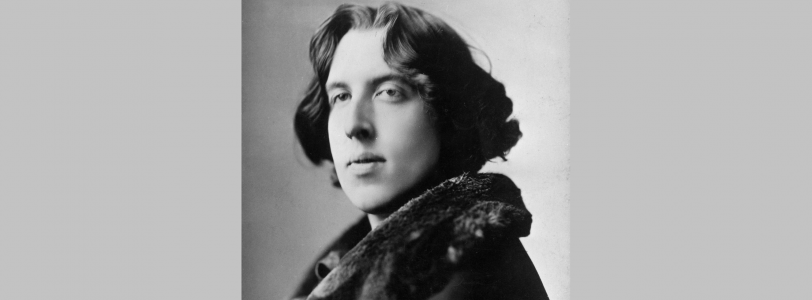Oscar Wilde
First of all, it’s always necessary to talk about the author’s biography to give you a bit of context.
Oscar Fingal O’Flahertie Wills Wilde was born in Dublin, Ireland, on October 16th 1854. Today, he’s known for his poetry books, his theatre plays and his only novel, and the one this blog is about, ‘The picture of Dorian Gray’ (1890).
Wilde had always a devotion for beautiful things, and to find them everywhere. He became one of the most important members of the London society: his personality and eccentric manners made him an extraordinarily interesting person. Also, he had a wide knowledge of literature; he had graduated from Oxford with the highest recognitions and was already considered a promising writer.
It is important to add that he was precursor of the aestheticism (an artistic movement based on the idea that art exalts beauty, the one thing above everything, the one thing to seek despite social contexts and morality). This reflected in many of his works, reaching its peak on 'The picture of Dorian Gray'.
Wilde spent two years in prison for charges of indecency, accused by Sir John Sholto Douglas for having an intimate relationship with his son, Alfred Douglas (back then, homosexuality was considered a criminal offence). By the time he got out of prison, he had lost all his fame and his name had got forgotten by the public. He went to Paris, where he died poor and lonely- a terrible ending to a great mind.
'The picture of Dorian Gray'
This amazing story, with a mixture of love, crime, and vanity is a masterpiece of literature, and a must-read for artists.
An ode to beauty and the supremacy of arts, in this novel Wilde makes you inevitably engage with the characters: you’ll love them, hate them and suffer with them. It is an amazing ride, exploring philosophy, the aesthetic, the arts and the very strange paths of love.
It all begins in Basil Hallward's painting study, where Dorian Gray poses for his portrait, and Lord Henry (Basil's friend) is the audience and is completely dazzled by Dorian's beauty. By then, Dorian is just a teenager very easy to influence, and that's how Lord Henry convinced him to live a life given to eternal youth, beauty, passion and art. Moved by the desire of leading that life, Dorian then wishes his portrait will carry all of his sins and all the darkness his sould could hold through his lifetime, so he would keep his young face forever, freed of the marks of ageing and decadency. From this moment to the end, the book only gets better.
There are many things to learn from this novel, and it's possible to point out a few with some of its most memorable quotes:
"to define is to limit"
"The books that the world calls immoral are books that show the world its own shame"
"Experience is merely the name men gave to their mistakes"
"Behind every exquisite thing that existed, there was something tragic"
"We poor artists have to show ourselves in society from time to time, just to remind the public that we are not savages"
Why is it a classic?
This novel has managed to become one of the greatest classics in literature, and it’s because of the magnificent writing and the ability to submerge the reader in the story, the engaging plot, and the topics covered in the story (it’s easy to feel identified with many of them, like the fear of growing old), and the exploring of good and evil in human nature, that make it a timeless artwork.









0 Comments